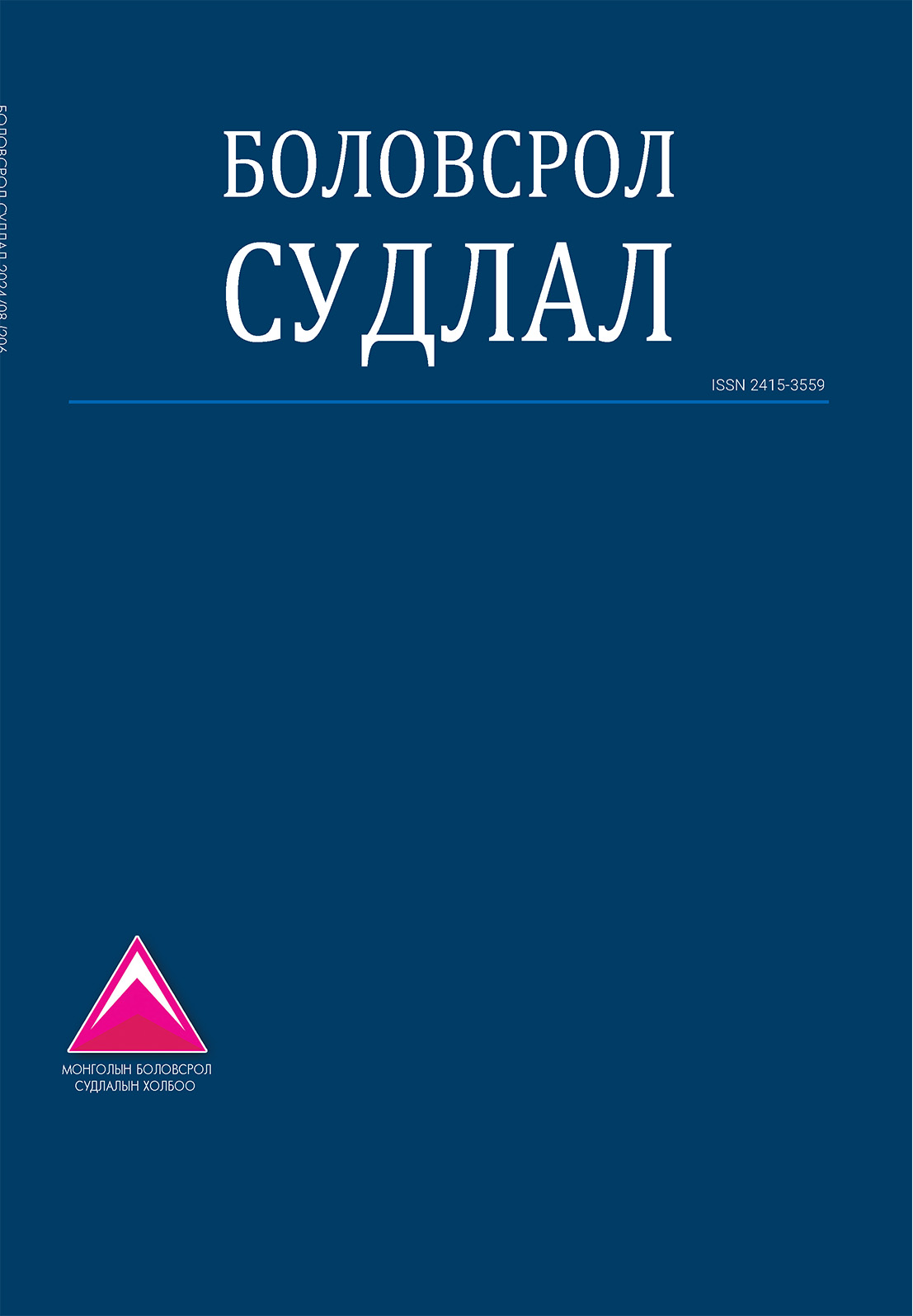Digital Skills Framework
DOI:
https://doi.org/10.65168/Keywords:
цахим шилжилт, тоон бичиг үсэг, цахим ур чадвар, бүтцийн хүрээAbstract
The digital transition is advancing rapidly in countries around the world, significantly impacting social and economic development. This shift necessitates effective government policies and regulations, the development of information and communication technology (ICT), improved infrastructure, and enhanced digital skills among citizens. Because individual digital skills are essential for a successful digital transition, many countries have prioritized the personal development of knowledge, skills, and attitudes necessary to utilize technology. To address this, they have implemented both long- and short-term policies and strategies. In recent years, Mongolia has placed a strong emphasis on accelerating its digital transition to convert public services into digital formats, improve access for citizens, enhance economic efficiency, and reduce bureaucracy. Additionally, the country recognizes the importance of citizens' readiness in digital skills as a crucial factor in this process. However, efforts aimed at developing digital skills and human resources have not been executed in a systematic or sufficiently comprehensive manner. This article discusses the structural framework of digital skills necessary for facilitating a successful digital transition.References
ЦХХХЯ (2022), Цахим үндэстэн бодлогын бичиг баримт
ҮСХ (2022). Өрхийн мэдээлэл, харилцаа холбоо, технологийн хэрэглээ хүртээмжийн судалгаа, https://www.1212.mn/mn/statistic/file-library/view/90161551
БШУЯ, ЦХХХЯ, ХНХЯ, СЯ (2022) Бүх нийтийн цахи ур чадвар, чадамжийг дээшлүүлэх төлөвлөгөө, https://mddc.gov.mn/wp-content/uploads/2022/07/DL_Hamtarsan_tushaal_20220725-2.pdf
Г.Цэрэнжаргал (2021), Төрийн албан хаагчдын цахим засаглалын шилжилт дэх бэлэн байдлын үнэлгээ, магистрын судалгааны ажил
ҮСХ (2018). Нийгмийн үзүүлэлтийн түүвэр судалгаа - 2018
OECD (2023), Digital Transformation Report, Yearly report OECD, 123-140.
ITU (2020), Digital Skills Assessment Guidebook, 8-11
Eckhardt, A. Laumer, S.; Weitzel, T, (2009), Who influences whom? Analyzing workplace referents' social
influence on IT adoption and non-adoption, Journal of Information Technology, 11–24.
Curtis, L.; Edwards, C.; Fraser, K. L.; Gudelsky, S.; Holmquist, J.; Thornton, K.; Sweetser, K. D., (2010),
Adoption of social media for public relations by nonprofit organizations, Public Relations Review, 90–92.
Verhoeven, J. C.; Heerwegh, D.; De Wit, K., (2010), Information and communication technologies in the
life of university freshmen: An analysis of change, Computers & Education, 53–66.
Welch, Ruel; Alade, Temitope; Nichol, Lynn, (2021), Using the Unified Theory of Acceptance and Use of
Technology (UTAUT) Model to Determine Factors Affecting Mobile Learning Adoption in the
Workplace: Study of the Science Museum Group, International Journal on Computer Science and Information Systems, 85–98.
Lin, C.-P.; Anol, B, (2008), Learning online social support: An investigation of network information
technology, CyberPsychology & Behavior, 268–272.
Sykes, T. A.; Venkatesh, V.; Gosain, S., (2009), Model of acceptance with peer support: A social network
perspective to understand employees' system use, MIS Quarterly, 371–393.
Wang, Y.-S.; Wu, M.-C.; Wang, H.-Y., (2009), Investigating the determinants and age and gender
differences in the acceptance of mobile learning, British Journal of Educational Technology, 92–118.
INSEAD, Descartes Institute for the Future, and Human Capital Leadership Institute (2023). Global Talent
Competitiveness Index 2023, https://www.insead.edu/system/files/2023-11/gtci-2023-report.pdf


